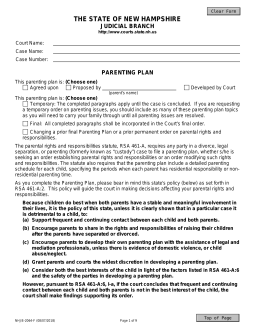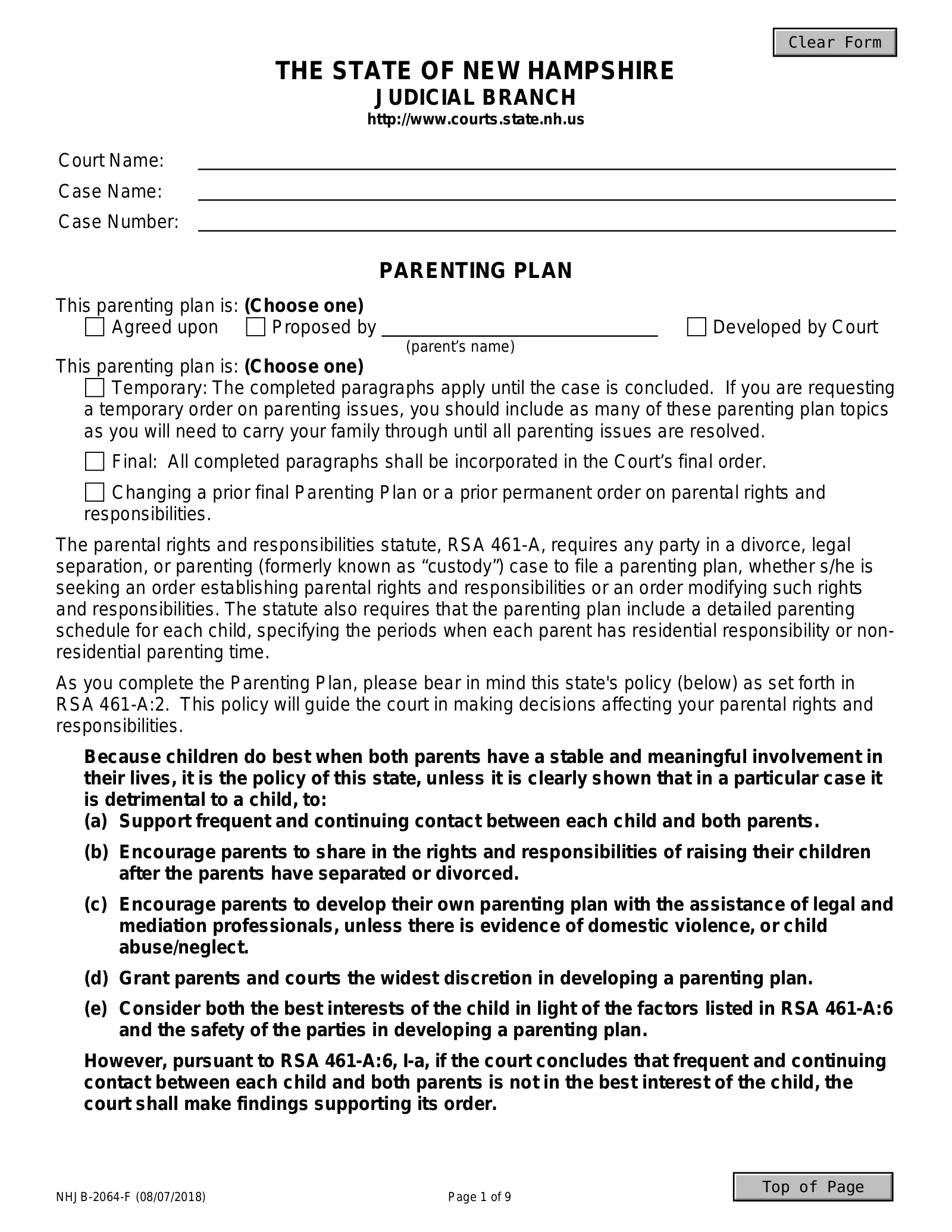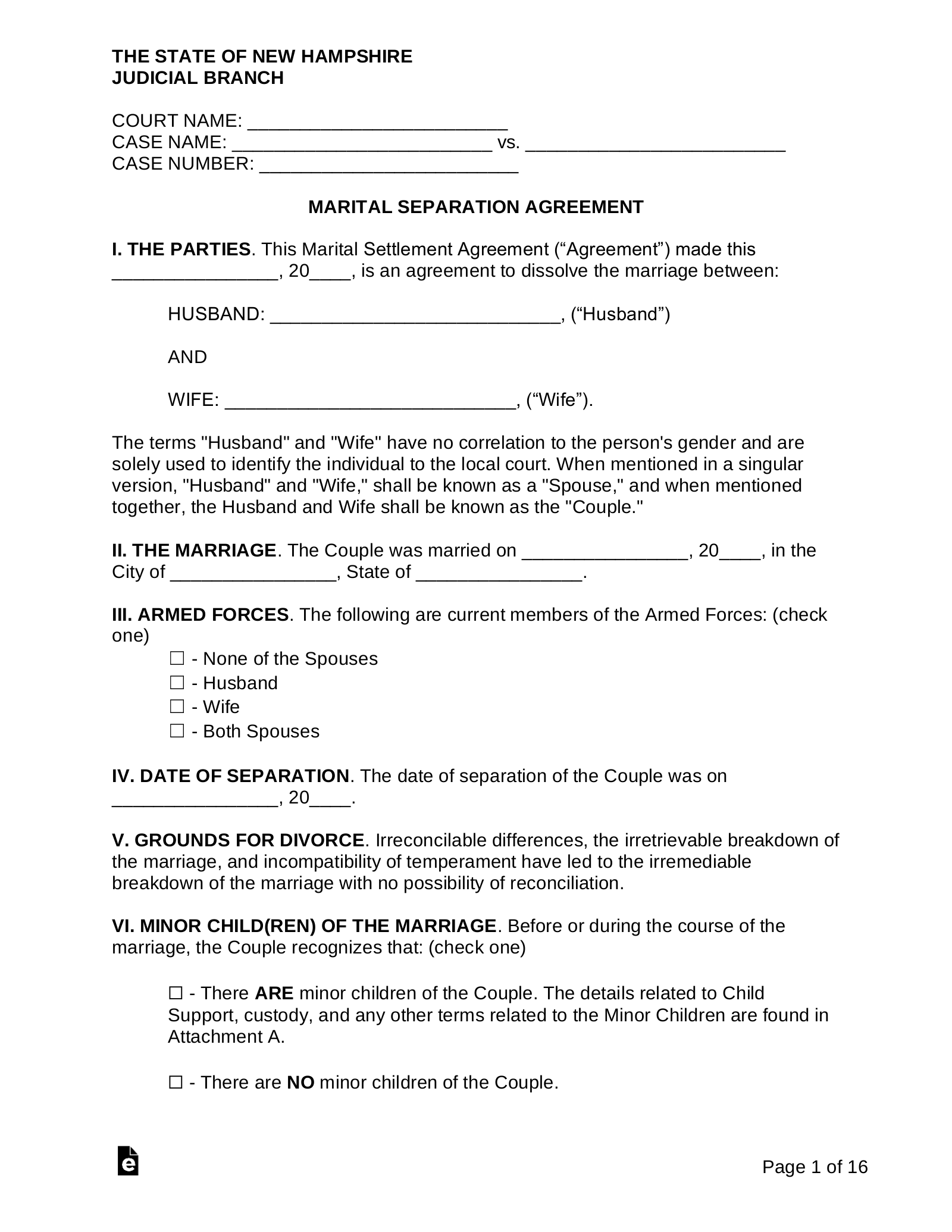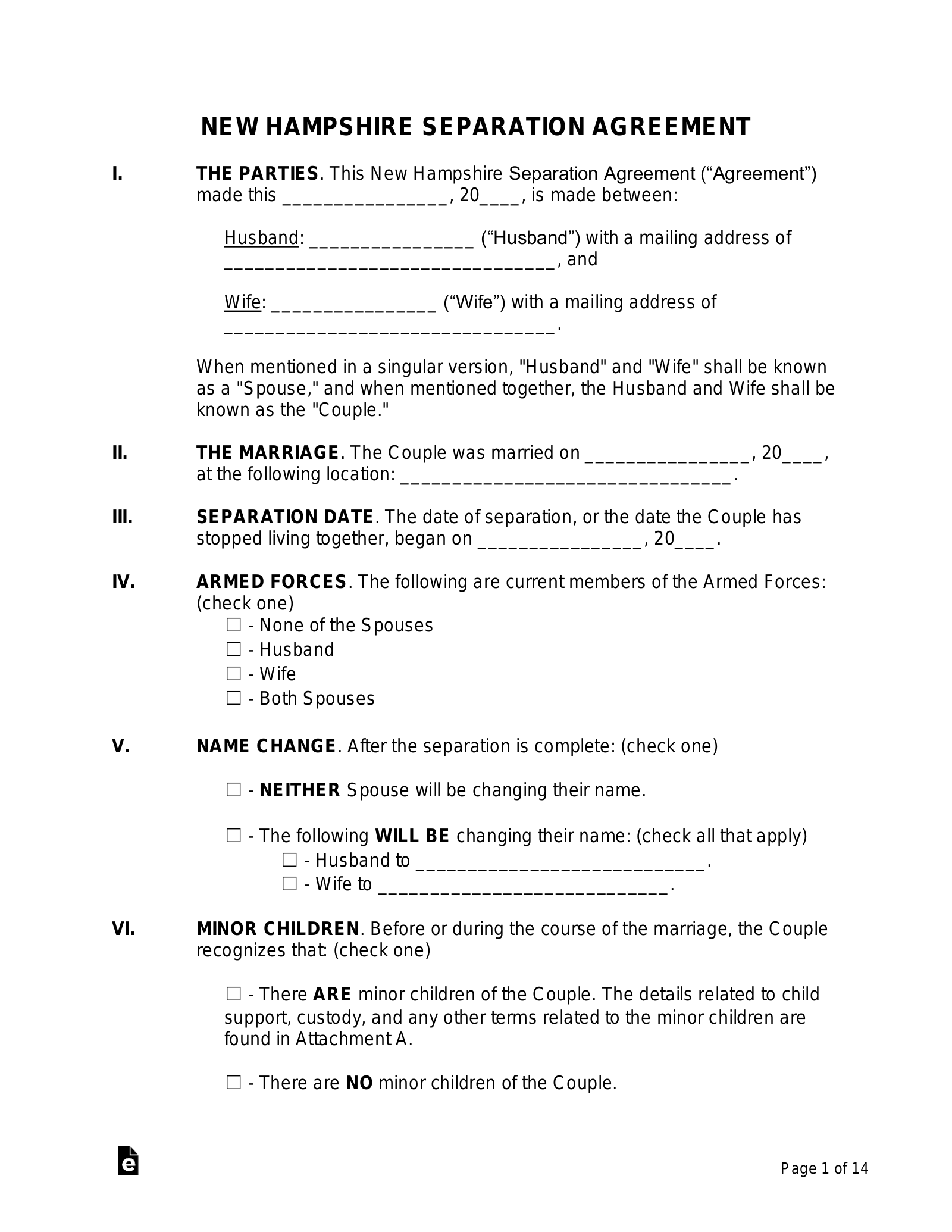Updated September 21, 2023
A New Hampshire custody agreement is a written plan describing parents’ rights and responsibilities concerning their children in separation or divorce. New Hampshire courts encourage parents to plan an agreement with a professional mediator whenever possible.
Child Custody Factors
New Hampshire law defines the child’s best interest as the following:
- Each parent’s ability to meet the child’s specific developmental needs;
- Each parent’s ability to provide clothes, education, food, housing, and healthcare for the child;
- Evidence of abuse by either parent;
- The child’s relationship with each parent;
- The child’s relationships with other household members;
- The effect changing schools or homes would have on the child;
- The parents’ ability to communicate effectively with one another regarding the child; and
- The parents’ ability to support each other’s relationships with the child.
Statute: § 461-A:6
Table of Contents |
How to File for Custody in New Hampshire
1. Agree on a Parenting Plan
Prior to filing for custody, both parents should attempt to reach an agreement regarding all the terms of custody. If parents are unable to submit a parenting plan together, the court may develop one on their behalf.
Under state law,[1] a parenting plan must cover all of the following items:
- Child’s legal residence for school registration
- Decision-making responsibilities
- Dispute resolution
- Information sharing
- Modification rules
- Parental relocation
- Parenting schedule (birthdays, holidays, vacations, weekdays, weekends, etc.)
- Residential responsibilities
- Transportation and exchanges of the child
2. Calculate Child Support
Use the state’s Child Support Guidelines Worksheet to calculate an estimate of how much child support may be ordered by the court.
3. File Parenting Petition with Court
First, one or both parents must initiate the custody proceeding by filing a Parenting Petition with their local family court. All of the following documents must be included in this initial filing:
- Circuit Court Filing Fee
- Joint Parenting Petition (if filing together) or Parenting Petition (if filing as an individual)
- Personal Data Sheet
When one parent files as an individual, the defending parent has to pick the paperwork up at the court, or the petitioning parent serves them by certified mail or with the assistance of the local Sheriff.
4. Prepare Mandatory Initial Disclosures
Prepare all applicable Mandatory Initial Disclosure documentation to submit to the court at the first hearing.
5. Attend First Appearance Session
The court will respond to the Parenting Petition within 30 days[2] of the filing date by scheduling a First Appearance Session.[3]
During this initial hearing, the judge considers the Mandatory Initial Disclosure documents and outlines subsequent hearings’ next steps.
The judge also explains the following subjects in detail as they pertain to the specific case:
- Child Impact Seminars;[4]
- Child Support;[5]
- Guardians Ad Litem;[6]
- Mediation;[7] and
- Parenting Plans.
6. Attend Child Impact Seminar
Attend the required Child Impact Seminar by whatever deadline the judge established in the First Appearance. The seminar is only complete when the parent is issued a formal Certificate of Completion to submit to the court.
7. File Additional Documentation
Submit the remaining court-required documentation as directed by the judge:
- Certificate of Completion of the Child Impact Seminar;
- Child Support Guidelines Worksheet;
- Decree on Parenting Petition;
- Financial Affidavits (both parties);
- Parenting Plan; and
- Uniform Support Order.
Custody Laws
- Child support guidelines: § 458-C, §461-A:14
- Child’s preference: § 461-A:6-II
- College expenses: §§ 461-A:21-24
- Emergency custody: § 458-A:15
- Grandparents’ visitation: § 461-A:13
- Mediation: § 461-A:7
- Military parents rights act: § 458-E
- Relocation of a child’s residence: § 461-A:12
- Restraining Orders: § 461-A:10
- Uniform Child Custody Act: § 458-A
- Visitation: § 461-A:4
Related Forms
Sources
- N.H. Rev. Stat. § 461-A:4
- N.H. Rev. Stat. § 461-A:4-a
- New Hampshire Judicial Branch: Divorce/Parenting ADR
- New Hampshire Judicial Branch: Child Impact Seminar
- New Hampshire Judicial Branch: Child Support
- New Hampshire Judicial Branch: Guardian ad Litem
- New Hampshire Judicial Branch: Circuit Court ADR




